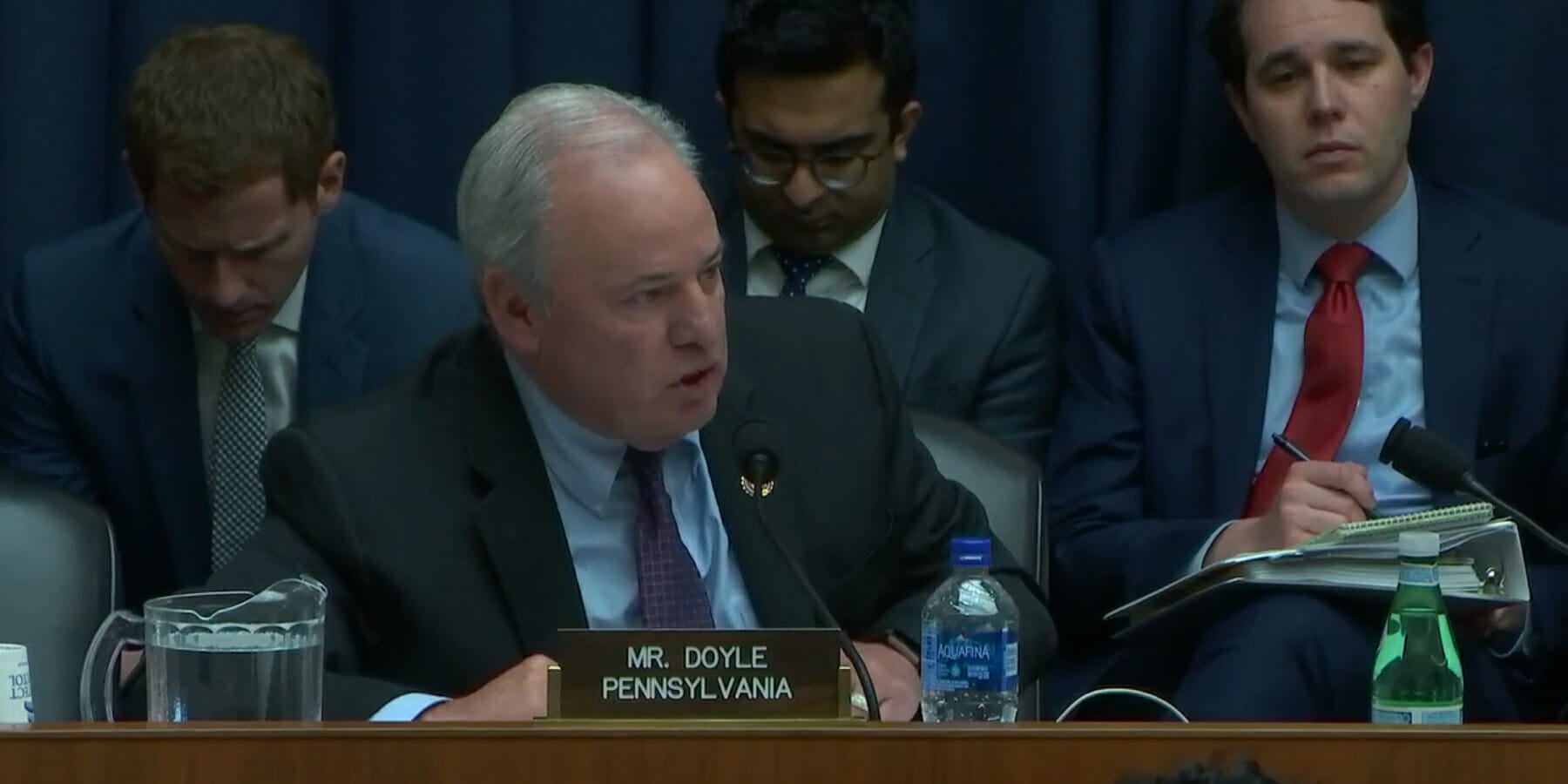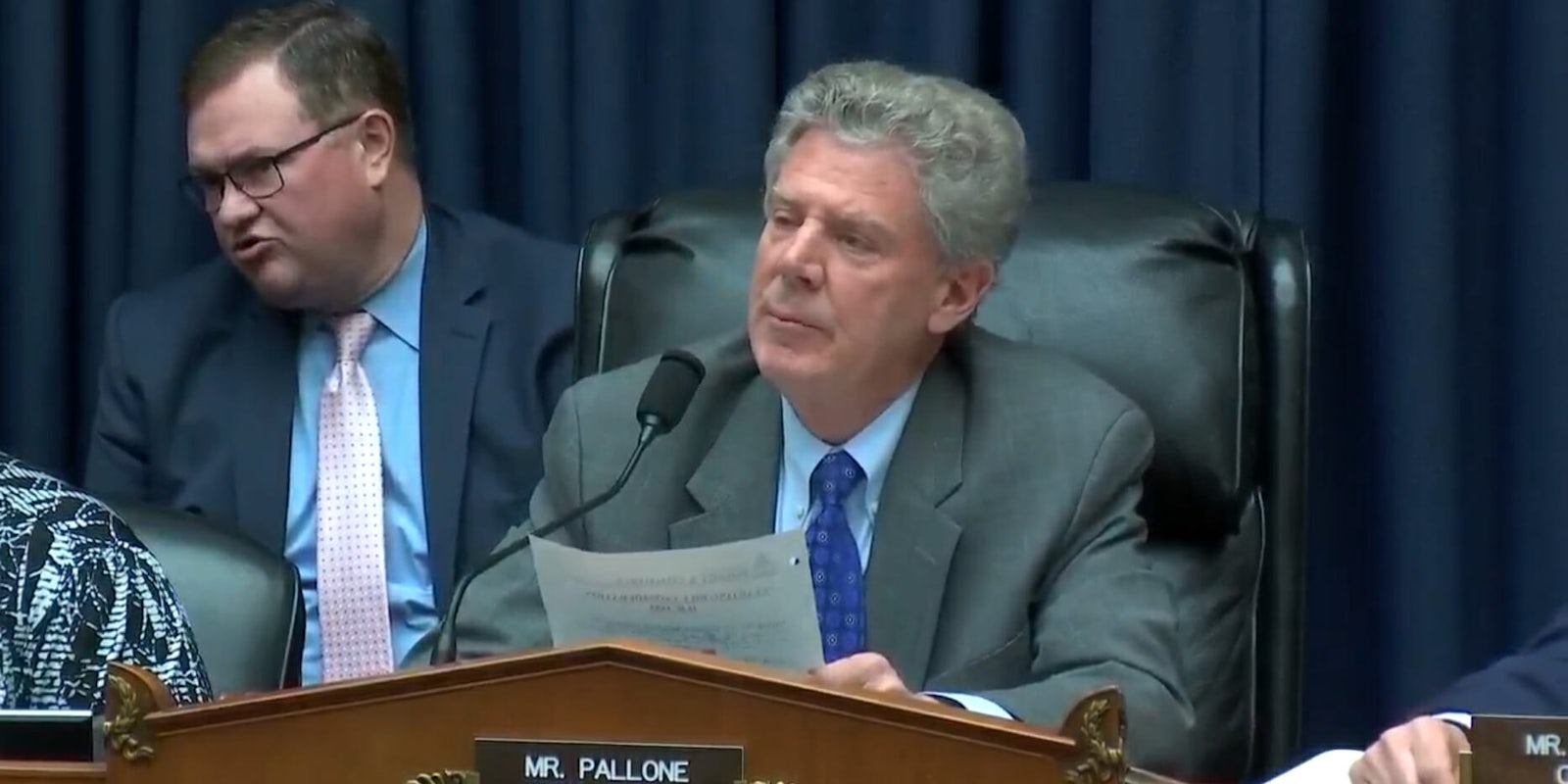The Save the Internet Act, a bill that would restore net neutrality rules, passed through a full committee markup in the House of Representatives on Wednesday evening, paving the way for a full vote as early as next week.
The bill, which would undo the Federal Communications Commission’s (FCC) repeal of net neutrality and restore the 2015 Open Internet Order, passed by a 30 to 22 margin in the full House Energy and Commerce Committee. Two Democratic amendments were added, and several Republican ones were offered but voted down.
Much like the discussions during the subcommittee markup last week, on Wednesday Republicans on the House Energy and Commerce Committee blasted the use of Title II of the Communications Act as a foundation for the Save the Internet Act, with Rep. Greg Walden (R-Ore.) calling it a “government takeover of the internet.”
Rep. Mike Doyle (D-Penn.), an original co-sponsor of the bill, began the markup hearing by announcing an amendment to the bill that he said addressed many of the concerns raised by Republicans throughout the process.
The amendment “clears up” questions from Republicans regarding how much of Title II is covered by the bill, Doyle said. The 2015 Open Internet Order used something called “forbearance” to limit what specific regulations were used under the broad scope of Title II.

“This amendment makes even clearer what authorities the FCC retains and which it does not. It makes doubly sure the Save the Internet Act is locking in the forbearance we discussed,” Doyle said, later adding: “This clarifying amendment specifies that Congress is stopping the clock and freezing the forbearances of the Order in place. The amendment, however, leaves in place the FCC’s ability to issue new rules to address future bad practices by ISPs that undermine net neutrality, but only under the limited statutory provisions that remains after forbearance.”
In response, Walden said he appreciated the effort to address Republican concerns, but argued that the amendment did not “close the door” on the matter. Walden offered an amendment to Doyle’s amendment, but ultimately it failed by a 30 to 23 margin.
Later in the markup, Doyle also offered an amendment that would create a one-year exemption for ISPs that serve less than 100,000 customers from a transparency requirement in the Open Internet Order. Republicans appeared to want the threshold to be 250,000 customers. The amendment passed 29 to 22.
During the more than nine-hour hearing, other Republicans including Rep. Adam Kinzinger (R-Ill.), Rep. Cathy McMorris Rogers (R-Wash.), Rep. Bill Flores (R-Texas), Rep. Greg Gianforte (R-Mont.), Rep. Bob Latta (R-Ohio), Rep. Brett Guthrie (R-Ky.), Rep. Bill Johnson (R-Ohio), (R-Ill.), Rep. Tim Walden (R-Mich.), and Walden also offered amendments, but all of them did not pass.
The Save the Internet Act will reportedly get a full vote in the House of Representatives next week. It’s expected to pass through the Democrat-controlled chamber but faces a more uncertain future in the Senate.
Numerous pro-net neutrality groups applauded the vote.
“This bill is crucial to restoring the net neutrality protections gutted by Chairman Ajit Pai’s FCC in a giveaway to giant internet service providers—including Pai’s former employer Verizon,” said Mark Stanley, the director of Demand Progress, in a statement. “An overwhelming majority of Americans support the rules that the Save the Internet Act restores, which prevent discriminatory practices and guarantee the public can communicate, organize online and access the information and services they need, without corporate gatekeepers.”
Evan Greer, the deputy director of Fight for the Future, was looking ahead to the vote on the House floor. The internet rights group launched a campaign to get more people to watch the markup via a livestream.
“The overwhelming majority of voters from across the political spectrum want Congress to do their jobs and restore these basic protections that never should have been taken away in the first place. The Save the Internet Act would do exactly that, and any lawmaker who doesn’t want to invoke the wrath of their constituents should vote for its clean passage on the House floor,” Greer said in a statement.
READ MORE:


